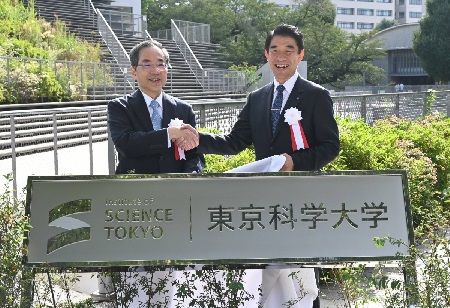The Institute of Science Tokyo was officially inaugurated, marking the establishment of a new university formed by the merger of two prominent Japanese institutions: the Tokyo Institute of Technology and Tokyo Medical and Dental University. This significant merger, which took effect in October after two years of preparation, aims to position the new university as a competitive force among the world's leading research institutions.
Recognized by the Japanese government for their excellence in education and research, the Tokyo Institute of Technology and Tokyo Medical and Dental University signed the merger agreement in October 2022. The creation of the Institute of Science Tokyo represents a pioneering effort, as it is the first national university in Japan to feature both a Chief Executive Officer (CEO) and a Chief Academic Officer (CAO).
Despite challenges such as Japan's declining population, there is an anticipated rise in the number of individuals seeking further education. The new institution boasts a total enrollment of approximately 13,000 students, including 6,242 undergraduates and 7,116 postgraduates, with 2,145 of these students coming from abroad.
The Institute of Science Tokyo inherits the existing structures of its predecessor institutions, including six schools focused on science and engineering, as well as faculties dedicated to medicine and dentistry. "We aspire to create a vibrant university that actively tackles the challenges of developing new industries and addressing pressing social issues," stated Naoto Ohtake, the inaugural president of the Institute. Ohtake, an esteemed engineering professor, previously directed the Institute of Innovative Research at the Tokyo Institute of Technology.This merger is notable for its scale; it represents the first instance of two elite research universities merging their operations completely, as previous national university consolidations primarily involved smaller, single-discipline institutions joining larger universities.
One of the highlights of the Institute of Science Tokyo is the establishment of a medical engineering research institute, which will serve as part of a broader initiative focused on new industry research. This institute will unify approximately 20 previously independent industry-academia collaboration centers. Collaborative efforts will center on developing advanced medical technologies, including nursing robots, AI-driven diagnostic imaging, and innovative surgical instruments.
Traditionally, medical departments in Japanese universities operate with a high degree of independence, which can hinder collaboration. However, the equal partnership established in this merger aims to facilitate interdisciplinary cooperation. The Tokyo Institute of Technology’s extensive experience in industry-academia collaboration will be instrumental in driving technological advancements.In addition to enhancing its competitive edge through this integration, the Institute of Science Tokyo plans to seek support from a substantial government fund of 10 trillion yen (approximately $70 billion) intended for schools recognized as global institutions. The university aims to participate in the next round of public funding opportunities set to begin in fiscal 2024.
Japan’s declining research capabilities have raised concerns over the years, with the nation currently ranking 13th globally in terms of highly cited research papers—a key indicator of research impact and visibility, according to the Ministry of Education, Culture, Sports, Science, and Technology. The launch of the Institute of Science Tokyo signifies a strategic move to revitalize Japan's research landscape and enhance its international standing.

